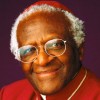To suffer torments both of heat and chill,
the Utmost Power gives bodies, fit for that,
not wishing how it does to be revealed.
It’s madness if we hope that rational minds
should ever follow to its end the road
that one true being in three persons takes.
Content yourselves with quia, human kind.
Had you been able to see everything,
Mary need not have laboured to give birth.[A sofferir tormenti, caldi e geli
simili corpi la Virtù dispone
che, come fa, non vuol ch’a noi si sveli.
Matto è chi spera che nostra ragione
possa trascorrer la infinita via
che tiene una sustanza in tre persone.
State contenti, umana gente, al quia;
ché, se potuto aveste veder tutto,
mestier non era parturir Maria.]Dante Alighieri (1265-1321) Italian poet
The Divine Comedy [Divina Commedia], Book 2 “Purgatorio,” Canto 3, l. 31ff (3.31-39) (1314) [tr. Kirkpatrick (2007)]
(Source)
Virgil chides Dante to stop trying to figure out the biology, let alone divine purpose, of the Afterlife, and just accept the what (quia), the existence of it, rather than the how or why, which are as incomprehensible as the Trinity; if human reason could suffice to understand God, there would have been no reason for Jesus to have been born to save humanity.
(Source (Italian)). Alternate translations:
Why these sky-woven forms, that seem to fly
All mortal sense, can suffer and enjoy
Heav'n's bliss, and all th' extremes of fire and frost,
That Power that so decrees, can best explain:
Created plummet sounds that depth in vain.
In that, as in the Trinal Union, lost.
Too anxious mortals! learn to be resign'd;
Could the deep secrets of th' Almighty Mind
Be seen, nor Sin nor Savior had been known.
[tr. Boyd (1802), st. 7-8]
To endure
Torments of heat and cold extreme, like frames
That virtue hath dispos’d, which how it works
Wills not to us should be reveal’d. Insane
Who hopes, our reason may that space explore,
Which holds three persons in one substance knit.
Seek not the wherefore, race of human kind;
Could ye have seen the whole, no need had been
For Mary to bring forth.
[tr. Cary (1814)]
To suffer torments, both the cold and hot,
Bodies alike in form has he annealed --
The how he wishes not to use revealed.
Foolish! who think our reason can unveil,
Or hope to pass the infinital way
To find three persons one Substantiality:
Remain content without the manner how.
Could you have seen at once the whole of worth,
Why was it meet Maria should bring forth?
[tr. Bannerman (1850)]
To suffer torments, both of cold and heat,
Bodies like this that Power provides, which wills
That how it works be not unveiled to us.
Insane is he who hopeth that our reason
Can traverse the illimitable way,
Which the one Substance in three Persons follows!
Mortals, remain contented at the Quia;
For if ye had been able to see all,
No need there were for Mary to give birth.
[tr. Longfellow (1867)]
To suffer torments both of heat and cold that Power ordains such bodies, which will not that the manner of its working be revealed to us. Mad is he who hopes that our reason can travel over the boundless way, which one Substance in three Persons holds. Remain content, race of mankind, at the quia, for if you could have seen all no need was there that Mary should bring forth.
[tr. Butler (1885)]
To suffer torments, heat, and cold, is given
To bodies like to this, by high decree,
The how 'tis done by man cannot be riven.
He's mad who thinks our human reason free
Along the infinite career to run,
Of God, the substance one in Persons three.
Be ye content, O man, the Why unknown:
Had ye been able to behold the whole,
No need had Mary to bring forth her son.
[tr. Minchin (1885)]
To suffer torments, both hot and cold, bodies like this the Power ordains, which wills not that how it acts be revealed to us. Mad is he who hopes that our reason can traverse the infinite way which One Substance in Three Persons holds. Be content, human race, with the quia; for if ye had been able to see everything, need had not been for Mary to bear child.
[tr. Norton (1892)]
To suffer torments, heat and frost, bodies such as these that power disposes, which will not that its workings be revealed to us.
Mad is he who hopes that our reason may compass that infinitude which one substance in three persons fills.
Be ye content, O human race, with the quia! For if ye had been able to see the whole, no need was there for Mary to give birth.
[tr. Okey (1901)]
The Power fits such bodies as these to suffer torments of heat and frost which wills not that the way of its working should be revealed to us. Foolish is he who hopes that our reason can trace the infinite ways taken by one Substance in three Persons. Rest content, race of men, with the quia; for if you had been able to see all there was no need for Mary to give birth.
[tr. Sinclair (1939)]
That power disposes bodies like to mine
In torments both of heat and frost to weep
Which wills not that its working we divine.
He is mad who hopes that reason in its sweep
The infinite way can traverse back and forth
Which the Three Persons in one substance keep.
With the quia stay content, children of earth!
For if the whole before your eyes had lain,
No need was there for Mary to give birth.
[tr. Binyon (1943)]
Bodies like mine, to bear pain, cold and heat,
That power ordains, whose will forever spreads
A veil between its working and our wit.
Madness! that reason lodged in human heads
should hope to traverse backward and unweave
The infinite path Three-personed Substance treads.
Content you with the quia, sons of Eve,
For had you power to see the whole truth plain
No need had been for Mary to conceive.
[tr. Sayers (1955)]
We react
within these bodies to pain and heat and cold
according to the workings of That Will
which does not will that all Its ways be told.
He is insane who dreams that he may learn
by mortal reasoning the boundless orbit
Three Persons in One Substance fill and turn.
Be satisfied with the quia of cause unknown,
O humankind! for could you have seen All,
Mary need not have suffered to bear a son.
[tr. Ciardi (1961)]
To suffer torments, heat, and frost, bodies such as these that Power ordains, which wills not that the way of its working be revealed to us. Foolish is he who hopes that our reason may compass the infinite course taken by One Substance in Three Persons. Be content, human race, with the quia; for if you had been able to see everything, no need was there for Mary to give birth.
[tr. Singleton (1973)]
Yet bodies such as ours are sensitivev
to pain and cold and heat -- willed by that Power
which wills its secret not to be revealed;
madness it is to hope that human minds
can ever understand the Infinite
that comprehends Three Persons in One Being.
Be staisfied with quia unexplained,
O human race! If you knew everything,
no need for Mary to have borne a son.
[tr. Musa (1981)]Omnipotence disposes bodies like mine
To suffer torments both from heat and cold,
And how it does so, does not see fit to reveal.
Only a madman would expect our reason
To follow all that infinite approach
And understand one substance in three persons.
The human race should be content with the quia:
For if it had been able to see everything,
No need for Mary to have had a child.
[tr. Sisson (1981)]
The Power has disposed such bodiless
bodies to suffer torments, heat and cold:
how this is done, He would not have us know.
Foolish is he who hopes our intellect
can reach the end of that unending road
only one Substance in three Persons follows.
Confine yourselves, o humans, to the quia;
had you been able to see all, there would
have been no need for Mary to give birth.
[tr. Mandelbaum (1982)]
Such bodies are disposed to suffer torments, heat, and freezings by the Power that does not wish its ways to be unveiled to us.
He is mad who hopes that our reason can traverse the infinite way taken by one Substance in three Persons.
Be content, human people, with the quia; for if you had been able to see everything, there was no need for Mary to give birth.
[tr. Durling (2003)]
That power, that does not will that its workings should be revealed to us, disposes bodies such as these to suffer torments, fire and ice. He is foolish who hopes that our reason may journey on the infinite road, that one substance in three persons owns. Stay, content, human race, with the ‘what’: since if you had been able to understand it all, there would have been no need for Mary to give birth.
[tr. Kline (2002)]
The Power that fits bodies like ours
to suffer torments, heat, and cold
does not reveal the secret of its working.
Foolish is he who hopes that with our reason
we can trace the infinite path
taken by one Substance in three Persons.
Be content, then, all you mortals, with the quia,
for could you, on your own, have understood,
there was no need for Mary to give birth.
[tr. Hollander/Hollander (2007)]
These bodies were made by God, they endure troubles,
And heat, and frost -- but we are not informed
How this is accomplished; He does not want us to know.
You have to be mad, hoping that human reason
Can ever unravel the infinite things He does,
Three Persons simultaneously only One.
Be satisfied, O humans, with Reality,
For had you ever been able to see and know
It all, why bother with God in Mary's womb?
[tr. Raffel (2010)]
Quotations about:
ineffability
Note not all quotations have been tagged, so Search may find additional quotes on this topic.
“You’ve got to admit it’s a bit of a pantomime, though,” said Crawly. “I mean, pointing out the Tree and saying ‘Don’t Touch’ in big letters. Not very subtle, is it? I mean, why not put it on top of a high mountain or a long way off? Makes you wonder what He’s really planning.”
Terry Pratchett (1948-2015) English author
Good Omens, 1. “In the Beginning” (1990) [with Neil Gaiman]
(Source)
Referring to the Tree of the Knowledge of Good and Evil (Gen. 2:16-17).
The benevolent and sublime reformer [Jesus] of that religion [Judaism] has told us only that god is good and perfect, but has not defined him. I am therefore of his theology, believing that we have neither words nor ideas adequate to that definition. and if we could all, after his example, leave the subject as undefinable, we should all be of one sect, doers of good & eschewers of evil. No doctrines of his lead to schism.
Thomas Jefferson (1743-1826) American political philosopher, polymath, statesman, US President (1801-09)
Letter to Ezra Styles Ely (25 Jun 1819)
(Source)
Life can be confusing. Good God, and how. Sometimes it seems like the older I get, the more confused I become. That seems ass-backwards. I thought I was supposed to be getting wiser. Instead, I just keep getting hit over the head with my relative insignificance in the greater scheme of the universe. Confusing, life.
But it beats the hell out of the alternative.
Nothing is so firmly believed, as what we least know.
[Qu’il faut sobrement se mêler de juger des ordonnances divines.]
Michel de Montaigne (1533-1592) French essayist
Essays, Book 1, ch. 31, “That a Man must not be too hasty in judging of Divine Ordinances” (1580) [tr. Cotton (1686), Hazlitt (1877)]
(Source)
Alt. trans.:
- "Nothing is so firmly believed, as that which a man knoweth least." [tr. Florio (1603)]
- "Nothing is so firmly believed as what is least known."
You shouldn’t speak glibly about God. In Judaism you may not speak God’s name as a reminder that any human expression of the divine is likely to be so limited as to be blasphemous. But God should challenge your assumptions — you shouldn’t imagine you’ve got Him in your pocket.
Karen Armstrong (b. 1944) British author, comparative religion scholar
Interview with Bill Moyers, “NOW,” PBS (9 Apr 2004)
(Source)
“My thoughts are not your thoughts. For as high as the heavens are the above the earth, so are my thoughts above your thoughts, my ways above your ways.” It should be written over every preacher’s pulpit. […] Because so often we think that God’s ways are our ways. God’s thoughts are our thoughts. And we created God in our own image and likeness saying, “God approves of this. God forbids that. God desires the other.” […] This is where some of the worst atrocities of religion have come from. Because people have used this to give a sacred seal of a divine approval to some of their worst hatreds, loathings, and fears.
Karen Armstrong (b. 1944) British author, comparative religion scholar
NOW Interview with Bill Moyers, PBS (1 Mar 2002)
(Source)
Quoting Isaiah 55:8.
There are three things which are real: God, human folly, and laughter. Since the first two pass our comprehension, we must do what we can with the third.
Aubrey Menen (1912-1989) British writer, novelist, satirist, theatre critic
Rama Retold, Book 3, ch. 7 [Valmiki] (1954)
(Source)
This book is a modern retelling of part of the Ramayana.
A variant of this was inscribed on a silver beer mug given on a gift that President John F Kennedy gave to David Powers:
There are three things which are real:
God, human folly and laughter.
The first two are beyond our comprehension
So we must do what we can with the third.
God made life to be lived (the world to be inhabited) and not to be known.
Joseph Joubert (1754-1824) French moralist, philosopher, essayist, poet
Pensées [Thoughts], 1797 [tr. Auster (1983)]
(Source)
Not included in standard collections of the Pensées.
Sometimes, of course, you wish you could whisper in God’s ear, “God, we know that you are in charge. Why don’t you make it slightly more obvious?”
Desmond Tutu (1931-2021) South African cleric, Anglican Archbishop of Cape Town, Nobel Laureate
Wallenberg Lecture, University of Michigan, Ann Arbor (29 Oct 2009)
(Source)
Video at 20:37.
“From what I remember,” replied Crowley, thoughtfully, “– and we were never actually on what you might call speaking terms — He wasn’t exactly one for a straight answer. In fact, in fact, He’d never answer at all. He’d just smile, as if He knew something that you didn’t.”
“And of course that’s true,” said the angel. “Otherwise, what’d be the point?”Terry Pratchett (1948-2015) English author
Good Omens, 6. “Saturday” (1990) [with Neil Gaiman]
(Source)
“I mean, maybe you just want to see how it all turns out. Maybe it’s all part of a great big ineffable plan. All of it. You, me, him, everything. Some great big test to see if what you’ve built all works properly, eh? You start thinking: it can’t be a great cosmic game of chess, it has to be just very complicated Solitaire. And don’t bother to answer. If we could understand, we wouldn’t be us. Because it’s all — all –”
INEFFABLE, said the figure feeding the ducks.Terry Pratchett (1948-2015) English author
Good Omens, 7. “Sunday” (1990) [with Neil Gaiman]
(Source)
Crowley speculating to Aziraphale about God's motivations in creating a flawed Universe.
God moves in extremely mysterious, not to say, circuitous ways. God does not play dice with the universe; He plays an ineffable game of His own devising, which might be compared, from the perspective of any of the other players (i.e., everybody), to being involved in an obscure and complex version of poker in a pitch-dark room, with blank cards, for infinite stakes, with a Dealer who won’t tell you the rules, and who smiles all the time.
Terry Pratchett (1948-2015) English author
Good Omens, 2. “Eleven Years Ago” (1990) [with Neil Gaiman]
(Source)
If you take the long view, the universe is just something small and round, like those water-filled balls which produce a miniature snowstorm when you shake them.*
* Although, unless the ineffable plan is a lot more ineffable than it’s given credit for, it does not have a giant plastic snowman at the bottom.
Terry Pratchett (1948-2015) English author
Good Omens, 6. “Saturday” (1990) [with Neil Gaiman]
(Source)
“But the Great Plan can only be a tiny part of the overall ineffability,” said Crowley. “You can’t be certain that what’s happening right now isn’t exactly right, from an ineffable point of view.”
“It izz written!” bellowed Beelzebub.
“But it might be written differently somewhere else,” said Crowley. “Where you can’t read it.”
“In bigger letters,” said Aziraphale.
“Underlined,” Crowley added.
“Twice,” suggested Aziraphale.Terry Pratchett (1948-2015) English author
Good Omens, 6. “Saturday” (1990) [with Neil Gaiman]
(Source)












